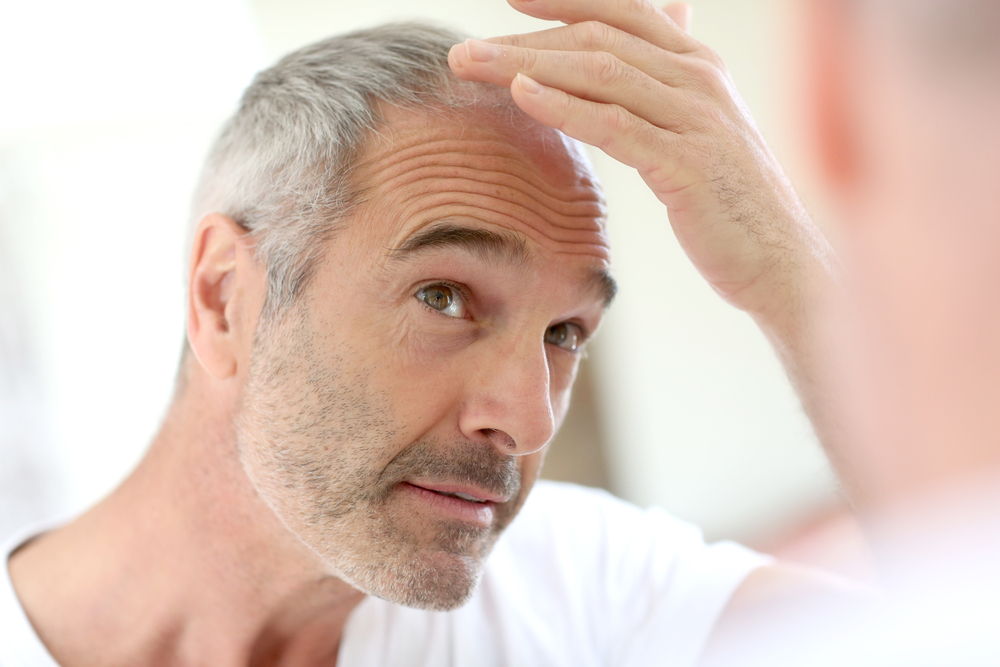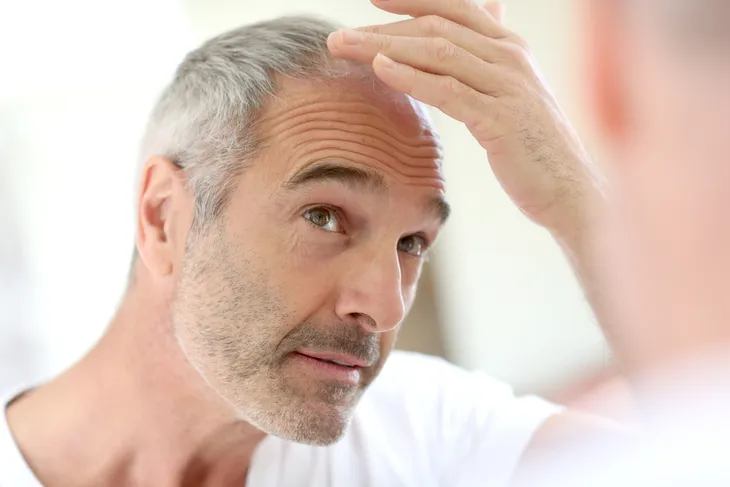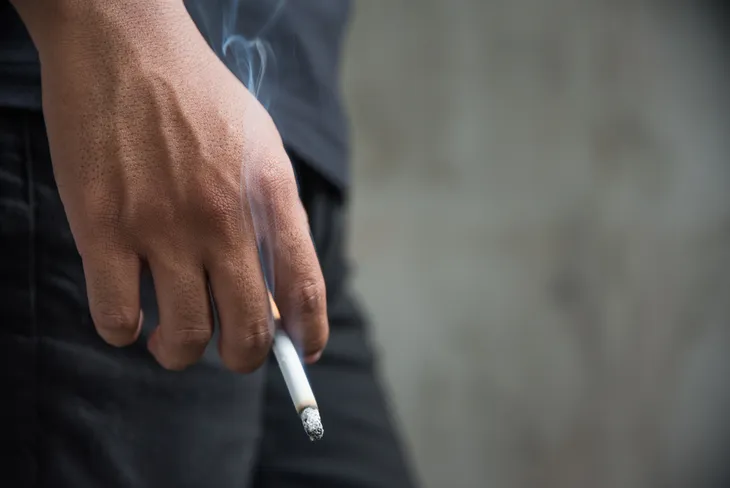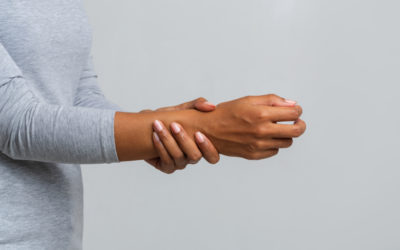Losing hair is a grim reality for many men – and what’s more is that it often gets written off as “that’s how it goes” or traced to family members who are also balding. Some men lose confidence and feel helpless as their lovely locks land on the bathroom floor.
However, while hair loss is often hereditary, it’s not always the only cause of follicle fallout. There could be health and dietary factors that contribute to the rate of balding, some of which can be prevented or slowed down with a few lifestyle changes. Here are seven of the most common culprits behind male hair loss…
Tight Hairstyles
Some men are still really into the ponytail, the combed-back look, or the “man bun” which has made a recent resurgence. While there is absolutely nothing wrong with having a unique hairstyle, ones that put stress on your hair (pulled back) can actually cause hair loss, according to AskMen.
AskMen notes that tight braids (including cornrows and dreadlocks) are also a hair-loss culprit, with these types of hairstyles causing recession of the hairline rather than patchy hair loss. So while you might look great now, you may want to consider another style for a while to give your hairline a break. The medical term for this is called “traction alopecia.”
Thyroid Problems
Your thyroid may be relatively small, but it is a major contributor of your body’s metabolic functions. Hypothyroidism is a fairly common problem that means your thyroid is underactive, which can lead to a variety of major health problems (including cancer).
Perhaps lost in the long list of symptoms is hair loss, and this is true for both men and women with an underachieving thyroid. If you’ve got some other symptoms like fatigue, teeth clenching, pain in the neck area, or a general feeling of malaise, you may want to visit your doctor and have your thyroid checked out.
Stress
You’ve probably used the term “I’m pulling my hair out” regarding a stressful situation, and you may not be far off from the truth. Excessive stress can lead to hair falling out, confirms the Mayo Clinic.
There are 3 different ways that stress can cause balding, said the clinic. For instance, one “pushes large numbers of hair follicles into a resting phase” that can lead to hair loss when brushing; the second is an autoimmune response that could be from extreme stress that attacks your follicles; and the third is called Trichotillomania, which is literally the urge to pull hair from your head and face due to stress or frustration.
Infections
There are a handful of infections that have been tied to hair loss, with one of them being ringworm. Don’t worry, despite the name there are no worms involved, but rather fungus that can grow anywhere on your body including the scalp, forcing your hair to fall out in patches.
Other infections that can cause male hair loss include dermatitis, which is primarily a skin condition but can affect your hair if it’s on your scalp. Folliculitis is just what it sounds like, causing inflammation of the hair follicles, which is usually caused by an infection. Even syphilis, commonly known as a sexually transmitted disease, can cause thinning or brittle hair, according to Everyday Health.
Poor Diet
It’s no secret that a poor diet can lead to all kinds of health problems, and one of them is poor hair quality. As the UK’s Daily Mail newspaper points out, hair is made of protein, so no protein in your diet is obviously bad news for your hair. Deficiencies of vitamin D, iron, and protein can be associated with hairloss.
However, LiveStrong points out that a high-protein diet can be just as detrimental to your scalp, because these diets often limit carbohydrate intake and cause other nutritional shortages. So don’t think you can grow a full head of hair back by jamming more protein into your meals or drinking protein shakes.
Smoking
Yes, smoking also has a connection to hair loss (among all the other symptoms that have made you consider quitting). A website post from The National Center for Biotechnology Information draws a parallel between smoking and faulty follicles in medical-speak that basically boils down to the fact that you’re poisoning your hair.
The post (that is more than 10 years old) about the relation of smoking and hair loss in both men and women urges more public awareness “that may be more effective than the link between smoking and facial wrinkles or grey hair” because those are more easily corrected by procedures.
Medications and Drug Use
While most medications achieve their intended purpose, there are of course side effects to each that can include hair loss. Everyday Health blames a variety of prescription drugs on hair loss, including blood thinners, beta-blockers, and antidepressants.
More surprisingly, the Everyday Health article says excessive Vitamin A can also cause hair loss, and that Vitamin A is the base of at least one major acne treatment. Other substances that cause loose locks are male hormones including testosterone and steroids.










